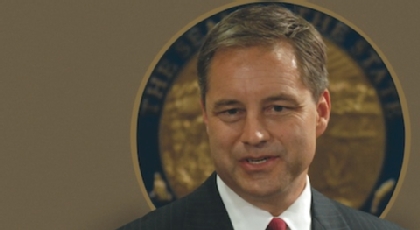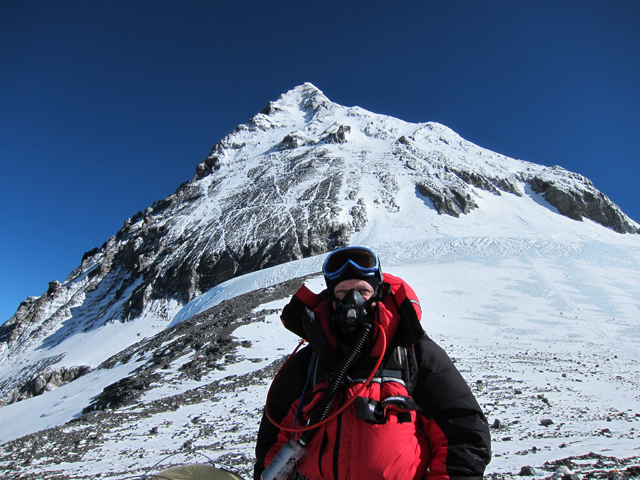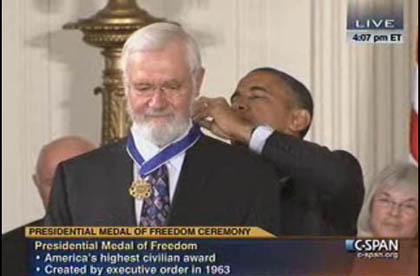Page 530 • (5,705 results in 0.05 seconds)
-
considers his profession a technical one. But that doesn’t mean he doesn’t value a liberal arts education, or the idea that a university should encourage its students to serve others.Brian Bradshaw '07 Personified Care for the World, Service to Humankind Brian Bradshaw ’07 believed that an education makes the difference on how we see the world. Even after his death, his legacy of service lives on through an endowed scholarship created by his parents.Alum's Positive Experience Leads to a Legacy Gift
-
influenced the nature of "knowledge" about archaeological discoveries by looking at how they have been interpreted and understood in the sociopolitical contexts of the modern countries where they are located. Science makes lofty claims that it is an objective mode of inquiry. In other words, science claims that the analysis and interpretation of data (in this case, bones, stones, and pottery, etc.) is carried out free of bias. This course will take care to evaluate this proposition. This course may
-
number of people and agencies. In the beginning Starbucks provided funding as well as free coffee for all in attendance. PLU Media Services gave JUTS a flat rate (no matter the size of the performing group) and personnel for providing sound reinforcement for the concerts. PLU Stage Services took care of stage setup. KPLU 88.5 FM provided extensive on-air promotion for the concerts and lent their prestigious jazz image to the series. Don Immel, the Director of Jazz Studies at PLU during that time
-
affects those working in helping professions such as health care, social services and law enforcement. The film, partially sponsored by the global relief organization, World Vision, premiered Oct. 8, 2011 in Seattle. A second public showing occurred on the campus of Pacific Lutheran University in early 2012. Adding to its acclaim, the film was later screened on March 26, 2014 as part of the New York City Filmmakers Anthology Series.OIL LITERACY, 2010Oil drives the global economy and supports the
-

often overbooked, with patients waiting for care. They plan to expand, but may need a few million if a grant doesn’t pan out. They look expectantly at Parnell, who remains pleasant, but noncommittal. “Budget time,” he smiles as he climbs back in the SUV that seems to be the favored mode of transportation in this state. Then it’s off to the airport and a flight to Juneau to meet with lawmakers later that night. It’s going to be another long day. Read Previous A ‘Twilight’ experience Read Next LEED
-
March 21, 2011 Stories of real people give a face to atrocities As Noemi Schoenberger Ban looked at her mother, one last time, the message was clear, Ban recalled. “Her eyes told me to take care of myself,” Ban said. And then her mother, baby brother and younger sister were gone, lost in the line that was going toward a barracks to “take a shower.” It was only weeks later that Ban realized what had really happened to her family in Auschwitz concentration camp. Ban told her story to a hushed
-

said. Nelson, himself had a mild case of pulmonary edema he had to overcome. It can be fatal, if not taken care of properly. He listened to the doctors and treated it by dropping altitudes and taking the proper pharmaceuticals. “They have doctors up there,” Nelson said. “They green lighted me and there I went.” “It can be a big danger if you come down with that because you can’t really move,” he said. “I guess I took a risk by doing that, but it didn’t feel like that at the time. “There was time
-

been, quite simply, recognized as one of the most important figures in public health. Shaping the global health care discussion Foege became executive director of The Carter Center in 1986 and continues to serve the organization as a senior fellow. He has served on the PLU board of regents and received an honorary doctorate from PLU in 2000, when he was the university’s commencement speaker. He helped shape the global health work of the Bill and Melinda Gates Foundation, and remains a champion of
-

early retirement package in the 1980s. “But I’m going to be 83 years old this summer and I think I’m getting old,” she said. “I need to kind of retire and take it easy for while.” But taking it easy may not be in her DNA. “I want to do something different,” she said. “First I want to do nothing, but then I want to go through my papers. I have my own immigrant collection.” She also has plans to clean out her house, digitize photos, take care of her garden, maybe sell her house, visit friends and
-

, service, leadership and care — for other people, for their communities, and for the Earth.” I am grateful that our faculty members versed in immigration law and the constitutional rights of individuals are strong voices on our campuses, in our communities, and on the national stage. I am also grateful for the work in the Student Life Division, and in our Student Services and financial aid offices to provide resources and referrals to our students. A web site has been created for undocumented students
Do you have any feedback for us? If so, feel free to use our Feedback Form.


